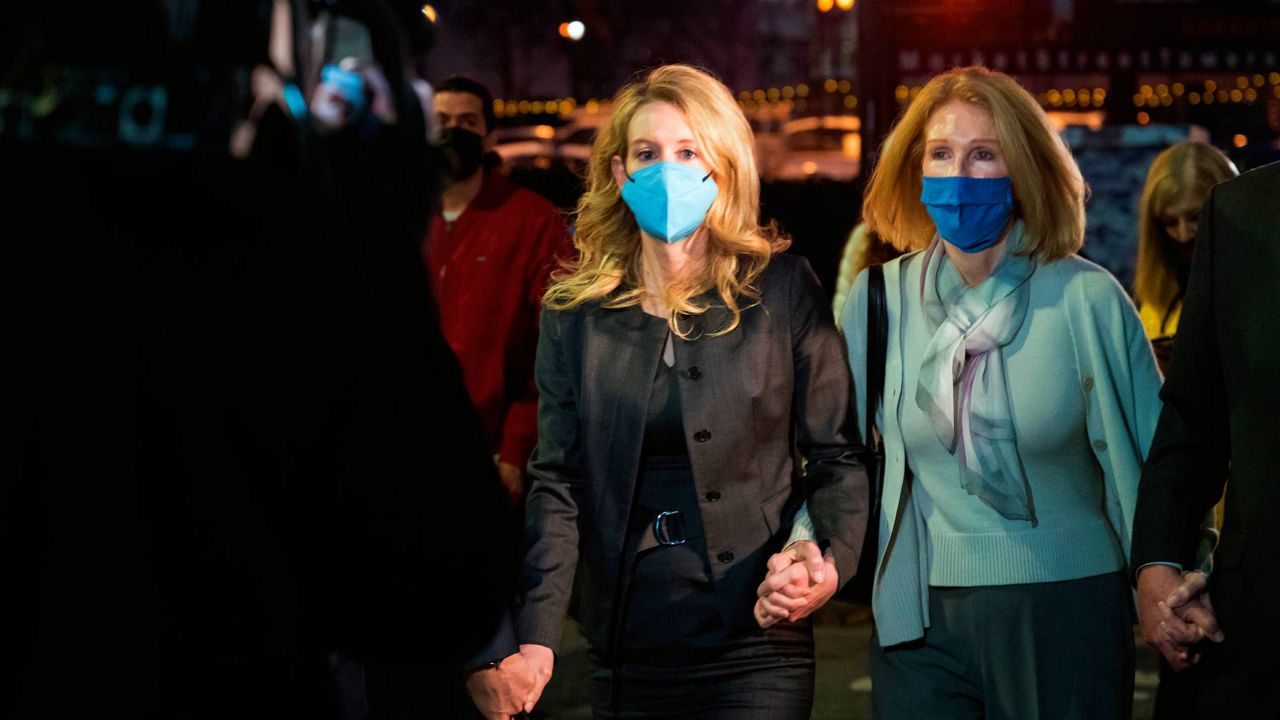SAN JOSE, Calif. (AP) — Ramesh “Sunny” Balwani, the jilted lover and business partner of former Theranos CEO Elizabeth Holmes, finally has his chance to defend himself against charges that he was Holmes’ accomplice in a Silicon Valley scam involving a ballyhooed blood-testing technology that flopped.
What You Need To Know
- Opening statements in Balwani's trial are scheduled Wednesday
- Balwani 57, has denied the charges facing him
- Holmes, 38, is free on $500,000 bail while awaiting her sentencing in September
- Balwani emerged as a key figure during Holmes' trial — only partly because she accused him of subjecting her to a pattern of emotional and sexual abuse
Opening statements in Balwani’s trial are scheduled Wednesday in the same San Jose, California, courtroom where a jury found Holmes guilty of investor fraud and conspiracy in January. She was acquitted on other counts accusing her of duping patients who relied on Theranos’ flawed blood tests.
Balwani, 57, has denied the charges facing him.
Holmes, 38, is free on $500,000 bail while awaiting her sentencing in September. That has stirred speculation that she might agree to testify against Balwani if prosecutors agree to recommend leniency in exchange for her cooperation. She is facing up to 20 years in prison.
“It leaves the door open” for Holmes to strike a deal, said Ann Kim, a Los Angeles lawyer who formerly handled fraud cases for the U.S. Attorney’s Office and Securities and Exchange Commission.
There has been no indication so far that Holmes will testify in Balwani’s case. Even if Holmes doesn’t take the stand, her specter is likely to loom large throughout Balwani’s trial, which is expected to run through mid-June.
Balwani emerged as a key figure during Holmes’ trial — only partly because she accused him of subjecting her to a pattern of emotional and sexual abuse that, she implied, may have affected her actions at Theranos.
The abuse allegations, which Balwani’s attorney has vehemently denied, were one reason that U.S. District Judge Edward Davila ruled the Holmes and Balwani should have separate trials even though they faced the same criminal charges.
Other evidence presented during her trial described a couple bonded in both a secret romance and shared ambition to build a company that they promised would revolutionize health care.
Balwani, a tech executive who reaped a $40 million windfall during the dot-com boom of the late 1990s, became involved with Holmes around the same time she dropped out of Stanford University in 2003 to start Theranos at 19.
Balwani didn’t initially play a direct role in Theranos, although Holmes testified he tried to sculpt Holmes into a more savvy entrepreneur while dictating her diet, daily schedule and friendships. Balwani joined Theranos in 2009 as the company’s chief operating officer, a position he held until Holmes ousted him in 2016 amid revelations of rampant inaccuracies with Theranos’ blood tests.
Before Holmes dumped him, Balwani played an integral role in the company that included overseeing Theranos’ labs. Meanwhile, Holmes focused on raising nearly $1 billion from investors and appearing in flattering media stories celebrating her whirlwind success in male-dominated Silicon Valley.
Holmes’ fortune was estimated at $4.5 billion in 2014 while Theranos was working on “wellness centers” in Walgreens stores that were supposed to scan for hundreds of potential health issues with a few drops of blood taken with a finger prick.
While Holmes got the glory, Balwani seemed to envision himself as a mastermind, based on evidence presented at the trial. “I have molded you,” Balwani told Holmes in a May 2015 text that became part of the evidence in her trial.
The texting exchanges between Balwani and Holmes — many of which included expressions of their love for each other — are expected to come up again during Balwani’s trial, along with much of the other evidence submitted during Holmes’ proceedings.
Having his trial follow Holmes’ could both hurt and help Balwani, Kim said. On the one hand, prosecutors now have a better idea of what types of evidence resonate with a jury. But Kim also believes Balwani’s lawyers may have a better chance to poke holes in the testimony of the prosecution’s witnesses if they deviate from statements during Holmes’ trial.
Balwani’s chances ultimately could hinge on how effectively his lawyers can draw a line distancing him from Holmes’ actions — a task that could prove difficult if texts like this one resurface during his trial.
“This business can not be built by either you or I alone,” Balwani wrote to Holmes in a May 2012 text submitted as evidence during her trial. “That’s why the universe brought us together (among other billion reasons).”



